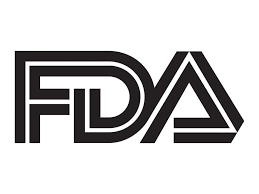Article
5 Cardiovascular FDA Decisions, Submissions Expected in 2022
Author(s):
From a couple of novel heart failure treatments to a promising dual receptor agonist, here's a rundown of expected pipeline news this year in heart disease.

In this last decade, the fields of cardiovascular and cardiometabolic care have boomed with new agents and refined drug capabilities. After the US Food and Drug Administration (FDA) required relevant cardiovascular outcomes for type 2 diabetes (T2D) drug applications in 2008, the understood comorbid benefit of agents expanded greatly and swiftly.
Within 7 years, the FDA was approving approximately a half-dozen novel drugs for cardiovascular and cardiometabolic indications annually. To this day, supplemental drug indications and emerging competitors have been increasingly considered for various forms of heart disease.
As HCPLive looks toward this year, here are 5 potential cardiovascular drug decisions and submissions to look out for.
New Drug Application: Mavacamten (Bristol Myers Squibb) for Obstructive Hypertrophic Cardiomyopathy (oHCM) – April 28
The first-in-class cardiac myosin inhibitor from BMS is designed to decrease contractile function and improve VO2 in patients with, oHCM, a rare inherited disease that often results in dynamic left ventricular outflow tract (LVOT) obstruction.
The drug’s benefit was supported by phase 3 EXPLORER-HCM trial data, presented at the American College of Cardiology (ACC) 2021 Scientific Sessions. Patients with LVOT ≥50 mmHg and NYHA class II-III symptoms reported early and sustained improvements in questionnaire summary scores for cardiomyopathy when treated with mavacamten versus placebo over 30 weeks.
At the time of its publication, the mean Kansas City Cardiomyopathy Questionnaire (KCCQ) score difference of 9.1 (95% CI, 5.5 - 12.8) observed between treated and controlled patients was the largest for any medication assessed versus placebo through the metric.
Study author John Spertus, MD, of the University of Missouri-Kansas City, previously told HCPLive the mechanism of benefit associated with mavacamten is still becoming understood. He said the investigative drug may even effectively treat patients with heart failure with reduced ejection fraction (HFrEF).
"As we learn what’s causing these quality-of-life benefits, there may be other diseases that may also benefit from the drug,” Spertus said.
New Drug Application: Omecamtiv Mecarbil (Cytokinetics) for HFrEF – November 30
The novel therapy provides benefit through activation of cardiac-specific myosin, a methodology by which experts expressed to HCPLive their belief that the agent could particularly improve patients with low ejection fraction HF.
Its application is supported by findings from the phase 3 GALACTIC-HF trial, a composite HF event or cardiovascular event-driven outcome assessment that showed patients with HFrEF had insignificantly improved risk reduction with omecamtiv mecarbil versus placebo. However, patients with ≤28% ejection fraction were observed to report greater composite risk reduction with the therapy versus placebo.
Nihar Desai, MD, MPH, Associate Professor of Medicine and Associate Chief of the Section of Cardiovascular Medicine at Yale University School of Medicine, recently told HCPLive his excitement for the potential approval is due to omecamtiv’s novel mechanism, which he said helps get to “the fundamental pathobiological underpinnings of heart failure.”
“It really does address the fundamental lesion, if you will, in systolic heart failure,” Desai said. “I'm quite excited that the addition of omecamtiv now adds additional tools to the broad armamentarium for what's available for our patients with systolic heart failure.”
Supplemental New Drug Application: Empagliflozin (Jardiance; Boehringer Ingelheim & Lilly) for patients with heart failure independent of left ventricular ejection fraction (LVEF)
Editor's Note: The FDA has approved empagliflozin for this indication as of February 2022.
The SGLT-2 inhibitor has earned its second indication for treating heart failure in under 10 months, after receiving FDA approval for the treatment of patients with HFrEF last August. Empagliflozin has shown notable and nearly unprecedented benefit for cardiovascular risk reduction in HF patients with preserved ejection fraction (HFpEF).
As Larry Allen, MD, Medical Director, Heart Failure at University of Colorado Anschutz School of Medicine told HCPLive, previously considered agents for this at-need population have fallen short of significant clinical marks. EMPEROR-PRESERVED data last year was celebrated for its impact.
“(Approximately) 50 to 60% of the patients that are out there with heart failure do have preserved ejection fraction and until now, mostly what we've been told to do is control their volume status with loop diuretics and then treat their comorbidities, which is not necessarily easy in patients who have obesity, chronic diabetes and hypertension,” Allen explained. “So now having a specific treatment for that to add to comorbidity treatment, I think is pretty exciting. That’s the empagliflozin story.”
New Drug Application: Tirzepatide (Lilly) for patients with type 2 diabetes – 2022
Lilly reported submission of the investigative dual GIP/GLP-1 receptor antagonist to the FDA with a Priority Review voucher in October 2021. Recently new data from the pivotal SURPASS clinical program showed tirzepatide significantly improved glycemic control as a once-weekly treatment in inadequately-controlled adults with type 2 diabetes.
Interestingly, while the therapy is being targeted for adiabetes indication, it has also been previously associated with positive bariatric and cardiovascular outcomes in comorbid patients. It is currently being set for phase 3 trial assessment of clinical efficacy and safety in patients with HFpEF and obesity; its path to cardiovascular indications may proceed diabetes.
Pivotal Phase 3 Data: Aprocitentan (Idorsia Pharmaceuticals; Janssen) for patients with treatment-resistant hypertension – 2022
Deliberation on the clinical development of this oral dual endothelin receptor antagonist began with the companies’ agreed-upon collaboration in 2018. With phase 3 trials underway in both US and EU clinics, investigators are anticipated to have available data by approximately mid-2022.
In phase 2 trial data, investigators observed a significant reduction in blood pressure among patients with treatment-resistant hypertension treated with aprocitentan versus placebo.





